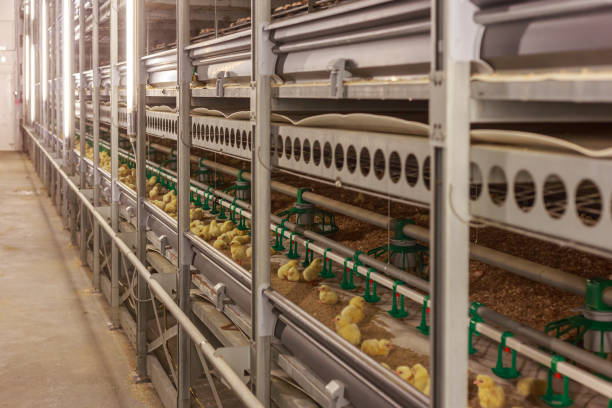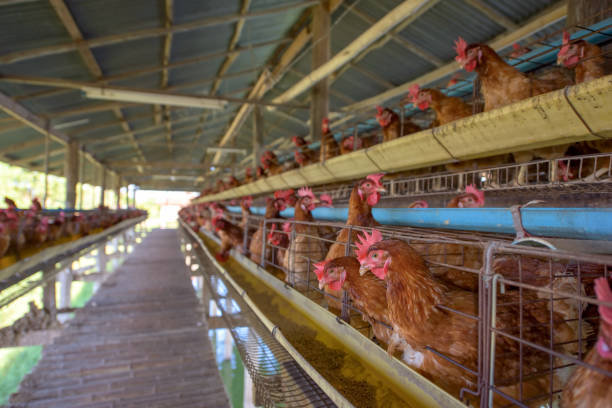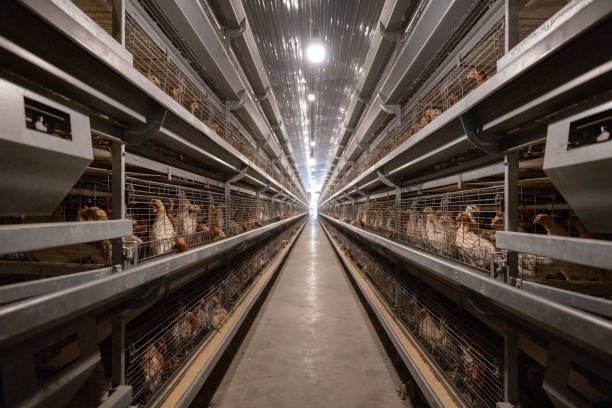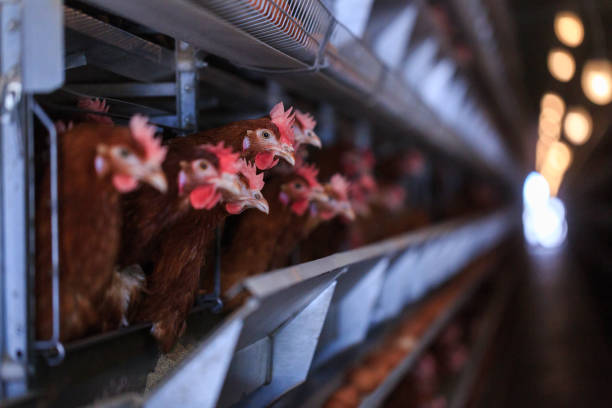
Choosing the Right Automated Poultry Equipment Supplier: What to Consider
Choosing the Right Automated Poultry Equipment Supplier: What to Consider
The modern poultry industry increasingly relies on automated poultry equipment to enhance efficiency, improve bird welfare, and maximize profitability. Selecting the right automated poultry equipment supplier is a critical decision that can significantly impact the success of your poultry operation. This comprehensive guide will walk you through the essential considerations to ensure you make an informed choice and establish a long-term partnership with a reputable and reliable supplier.
**Understanding Your Poultry Farm’s Needs**
Before diving into the selection process, it’s crucial to thoroughly assess your poultry farm’s specific needs and goals. This includes understanding the type of poultry you raise (layers, broilers, breeders), the scale of your operation, your current infrastructure, and your budget.
* **Type of Poultry:** Different types of poultry have varying requirements. Layer hens need specialized cages or housing systems designed for egg production, while broilers require systems optimized for rapid growth and meat production. Breeders need equipment suited for breeding and incubation.
* **Scale of Operation:** The size of your farm will determine the capacity and scale of the automated equipment you need. Small-scale farms may opt for simpler, more modular systems, while large-scale operations require robust and high-capacity solutions.
* **Existing Infrastructure:** Consider your existing buildings, ventilation systems, and other infrastructure. Ensure that the new automated equipment is compatible with your current setup to avoid costly modifications.
* **Budget Allocation:** Establish a realistic budget for your automated poultry equipment. This should include not only the initial purchase price but also installation, training, maintenance, and potential upgrades.
**Essential Factors to Evaluate When Choosing a Supplier**
Once you have a clear understanding of your farm’s needs, you can begin evaluating potential automated poultry equipment suppliers. Here are key factors to consider:
* **Reputation and Experience:**
* A supplier’s reputation speaks volumes. Look for suppliers with a proven track record of providing high-quality equipment and excellent customer service. Research their history in the industry and how long they’ve been supplying poultry equipment.
* Experience matters. Suppliers with extensive experience in the poultry industry are more likely to understand the unique challenges and requirements of different poultry operations. They can offer valuable insights and recommendations tailored to your specific needs.
* Seek out testimonials, case studies, and reviews from other poultry farmers who have worked with the supplier. This provides valuable insights into their performance, reliability, and customer support.
* **Product Quality and Innovation:**
* High-quality equipment is essential for long-term reliability and performance. Look for suppliers who use durable materials and adhere to strict manufacturing standards.
* Innovation is key in the rapidly evolving poultry industry. Choose a supplier that invests in research and development to offer the latest advancements in automated poultry equipment.
* Explore the range of products and services offered by the supplier. Ensure they can provide a comprehensive solution that meets all your needs, from feeding and watering systems to ventilation and egg collection.
* **Customization Options:**
* Every poultry farm is unique, and a one-size-fits-all solution may not be ideal. Opt for a supplier that offers customization options to tailor the equipment to your specific requirements.
* Customization can involve adjusting the size and capacity of the equipment, modifying the design to fit your existing infrastructure, or incorporating specific features to optimize performance.
* A good automated poultry equipment supplier is one that will work with you to design and implement a custom solution that meets your needs effectively and efficiently.
* **Technical Support and After-Sales Service:**
* Reliable technical support is crucial for the smooth operation of your automated poultry equipment. Choose a supplier that offers comprehensive technical support, including installation assistance, troubleshooting, and maintenance services.
* After-sales service is equally important. Ensure the supplier provides timely and efficient support for any issues that may arise after the equipment is installed.
* Inquire about the availability of spare parts and the supplier’s response time for service requests. This will help minimize downtime and ensure continuous operation of your poultry farm.

* **Compliance with Industry Standards and Regulations:**
* Ensure that the equipment meets all relevant industry standards and regulations. This includes safety standards, animal welfare guidelines, and environmental regulations.
* Working with a supplier that adheres to these standards will help you avoid potential legal issues and ensure the well-being of your poultry.
* Ask for certifications and documentation to verify compliance with relevant standards.
**Types of Automated Poultry Equipment to Consider**
Automated poultry equipment encompasses a wide range of systems designed to streamline various aspects of poultry farming. Here’s an overview of the key types of equipment to consider:
* **Automated Feeding Systems:**
* Automated feeding systems deliver feed to the birds at pre-determined intervals and quantities, ensuring consistent and efficient feeding.
* These systems can reduce labor costs, minimize feed wastage, and improve feed conversion rates.
* Different types of feeding systems are available, including chain feeders, auger feeders, and volumetric feeders, each with its own advantages and disadvantages.
* **Automated Watering Systems:**
* Automated watering systems provide a constant supply of fresh water to the birds, ensuring they stay hydrated and healthy.
* Nipple drinkers and cup drinkers are common types of automated watering systems, offering hygienic and efficient water delivery.
* These systems can reduce water wastage, minimize the risk of contamination, and improve bird health.
* **Automated Climate Control Systems:**
* Automated climate control systems regulate temperature, humidity, and ventilation in the poultry house, creating an optimal environment for bird growth and productivity.
* These systems use sensors and controllers to monitor environmental conditions and automatically adjust fans, heaters, and cooling systems as needed.
* Proper climate control can improve bird health, reduce mortality rates, and enhance overall performance.
* **Automated Egg Collection Systems:**
* Automated egg collection systems streamline the egg collection process, reducing labor costs and minimizing egg breakage.
* These systems use conveyor belts and automated egg handling equipment to collect eggs from the laying nests and transport them to a central collection point.
* Automated egg collection can improve egg quality, reduce contamination, and increase efficiency.
* **Automated Manure Removal Systems:**
* Automated manure removal systems remove manure from the poultry house on a regular basis, improving hygiene and reducing the risk of disease.

* These systems use scrapers, belts, or flushing systems to remove manure and transport it to a storage area.
* Efficient manure removal can improve air quality, reduce ammonia emissions, and enhance bird health.
* **Cage Systems (Layer Cages & Broiler Cages):**
* Cage systems, including layer cages and broiler cages, are designed to house birds in a controlled and efficient manner.
* Layer cages provide individual compartments for laying hens, allowing for easy egg collection and monitoring of individual bird performance.

* Broiler cages offer a controlled environment for broiler chickens, promoting rapid growth and efficient feed conversion.
* The selection of a cage system depends on many factors, including the type of poultry, farm size, and budget.
**Asking the Right Questions**
During the selection process, don’t hesitate to ask potential suppliers detailed questions to gather the information you need. Here are some key questions to consider:
* What experience do you have working with poultry farms of my size and type?
* Can you provide references from other poultry farmers who have used your equipment?
* What is the warranty on your equipment, and what does it cover?
* What is the expected lifespan of your equipment?
* What training and support do you provide for installation and maintenance?
* What is your response time for technical support requests?
* Do you offer customized solutions to meet my specific needs?
* Are your products compliant with all relevant industry standards and regulations?
* What financing options are available?
* What are the total costs, including installation, training and maintenance?
**Visiting Supplier Facilities and Farms**
Whenever possible, visit the supplier’s manufacturing facility and farms where their equipment is in use. This provides valuable insights into the quality of their products and the performance of their equipment in real-world settings.
* **Manufacturing Facility:** Visiting the manufacturing facility allows you to assess the supplier’s production processes, quality control measures, and adherence to industry standards.
* **Poultry Farms:** Visiting farms where the supplier’s equipment is in use enables you to see the equipment in action and speak with poultry farmers who have firsthand experience with it.
**Negotiating the Terms of the Agreement**
Once you’ve selected a supplier, carefully negotiate the terms of the agreement to ensure your interests are protected. This includes the purchase price, payment terms, delivery schedule, warranty coverage, and service agreements.
* **Purchase Price:** Negotiate the purchase price to ensure you’re getting a fair deal. Compare prices from multiple suppliers to ensure you’re not overpaying.
* **Payment Terms:** Establish clear payment terms, including the payment schedule and any financing options.
* **Delivery Schedule:** Agree on a realistic delivery schedule that meets your needs.
* **Warranty Coverage:** Carefully review the warranty coverage to understand what is covered and for how long.
* **Service Agreements:** Consider entering into a service agreement with the supplier to ensure ongoing support and maintenance.
**Building a Long-Term Partnership**
Choosing an automated poultry equipment supplier is not just a one-time transaction; it’s about building a long-term partnership. A reliable and supportive supplier can provide valuable expertise, technical support, and ongoing assistance to help you optimize your poultry operation and achieve your goals. Nurture the relationship through consistent communication, feedback, and collaboration, and foster a partnership based on trust, transparency, and mutual success.
By carefully considering these factors and conducting thorough research, you can choose the right automated poultry equipment supplier and establish a foundation for a successful and profitable poultry farming operation. The investment in quality equipment and a reliable supplier will pay dividends in the form of increased efficiency, improved bird welfare, and enhanced profitability. Good luck!
